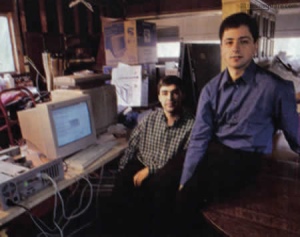Why Meerkat and Periscope are the Biggest Breakout Hits of the Year
Our phones are GoPros, thanks to Meerkat. —Semil Shah, overpaid blogger. March 15 2015.
When did the media turn into sales catalogs for shit made by rich people?
Meerkat was never cool. Even at its peak its highest ranking on the US iPhone download chart was 140. Periscope isn’t cool either. Even with Meerkat’s $12M Series A and Twitter’s marketing budget, these are apps that underperformed your average Croatian Flappy Bird clone [1].
Everyone is building their own brand, and the more you pander to the rich and powerful, the closer you might get. Maybe someday they’ll let you touch their hair.
As if being rich makes you smart or infallible. Remember how stupid Andreessen and Doerr and the Google guys looked with their idiotic Google Glass? The tech elite wanted it to be a hit so bad.

Secret will change communication. Yo is the future of your homescreen. Ello will kill Facebook.
Spouting nonsense is easy. Maybe a TechCrunch editor can do a story about how much of their content has been pitched. Or maybe they can disclose which VC funds their founder has invested in.
But they’re too busy tweeting and blogging about live-streaming selfies as the next big thing.
Great, our phones are now GoPros. Morgan Stanley analysts tried to GoPro themselves doing company research [2]. They learned that their lives are boring and they made a horrible career choice and they should just kill themselves.
And the live-selfie-streaming celebrities are boring too, because 99% of life is boring no matter how rich you are.
The tech reporters will keep trumpeting everything made by people with money — every venture-backed app is great until someone checks the download charts and finds out they’re shit. But it’s okay, you’ll get a free pass. Rich people always do.

References:
1. Meerkat is dying – and it’s taking U.S. tech journalism with it
2. Morgan Stanley Analysts Try GoPro, Discover Their Lives Are Boring –WSJ MoneyBeat








